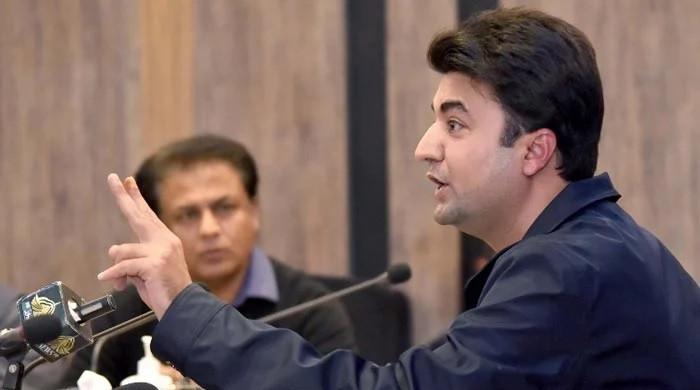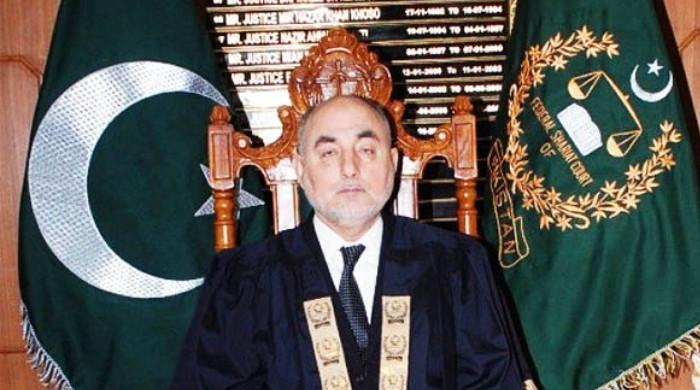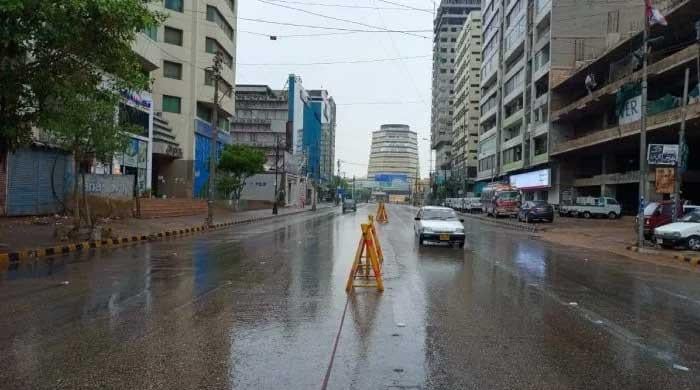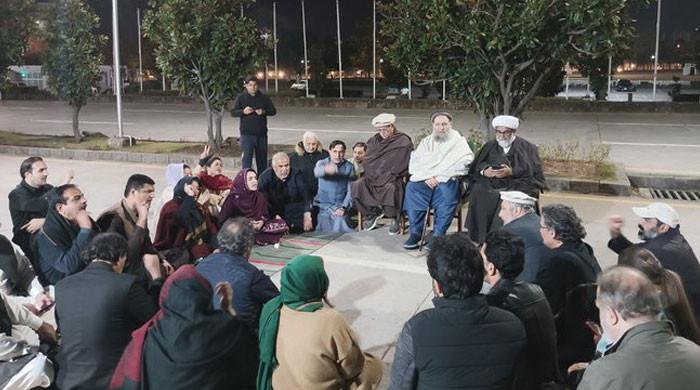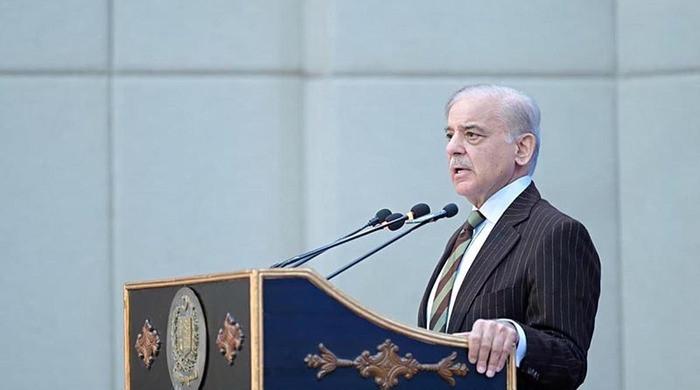LNG crisis: Finance, other ministries fear NAB, says Shaukat Tarin
Shaukat Tarin speaks on economy, inflation, LNG crisis and FBR data hack on Aaj Shahzaib Khanzada Kay Saath
August 26, 2021
- Shaukat Tarin expresses optimism over growing economy, says current inflation rate is manageable.
- Tarin says will not let FBR system breach go unpunished.
- Minister calls upon political leaders to ensure there is no fear of NAB among officials of ministries.
Finance Minister Shaukat Tarin Wednesday said officials in various ministries, including his own, were fearful of the National Accountability Burea (NAB) and the purchase of LNG at higher prices was due to fear of the anti-graft watchdog.
The finance minister expressed these views during his appearance on the Geo News programme "Aaj Shazeb Khanzada kay Sath".
Commenting on the government purchasing LNG at exorbitant rates and at delayed bargains, Shaukat Tarin said the petroleum ministry is not to blame, adding that the problem pertained to not just one ministry but to the entire government.
"We don't make purchase decisions on time as we fear prices may plunge. So, if we buy LNG at a price that goes down following the deal, NAB will hold us accountable," he explained.
He said NAB does not go after the SBP, which remains engaged with foreign exchange and money markets on a daily basis. "So, I proposed during the recent cabinet meeting to establish an institution comprising professionals who are aware of buying and selling practices throughout the year, so that we get the best price at the end of the day," he said.
He said the government will have to deal with the NAB issue in a professional manner as people are frightened of the anti-graft watchdog. "However, I will not speak on NAB as they served me a notice the last time I talked about it," he said.
"But, I know that people have this fear [of NAB] in my own ministry and in other ministries," he said, adding that accountability should be lauded but went on to say that there is a widespread fear of the burea.
He urged political leaders to sit together and sort the issue out, so that an "unjustified fear of NAB" dies down.
FBR data hack
Speaking about the Federal Board of Revenue (FBR) system getting hacked in a cyberattack, Tarin said the system has been restored with the help of world-class cybersecurity experts. He said the positive thing to focus on is that the hackers cannot access the data, he said.
Tarin said he was shocked and angry on not being kept in the loop about the hack, adding that those who did not pay proper attention to it tried to set things right on their own. The minister said he has directed the FBR to install internationally established best practices so that no cyberattack of a similar nature takes place in future.
The FBR had faced a similar incident in 2019, he said, but they did not learn their lesson.
"However, I will make sure that no such thing happens in future." Tarin added, saying that he would take strict action against those responsible for the cyber breach of the system.
SAPM's resignation
Commenting on the resignation of Special Assistant to Prime Minister on Finance and Revenues, Dr Waqar Masood, the finance minister ruled out that the development took place over a difference of opinion over the Kamyab Jawan programme, saying that he had to ask him to quit as "Dr Waqar Masood's modus operandi was different from mine and two separate ways of tackling things can't work simultaneously."
"I am a private-sector man while he [Waqar] is quintessentially a bureaucrat. So, things were not evening out between two of us," he added.
Terming the Kamyab Jawan programme a revolutionary step, Tarin said the government is helping the poor at their doorstep, adding that it was not handout or charity. Rather, he noted, the government was offering people an opportunity to live in a dignified manner with a respectable source of income.
Replying to a question about the prospect of the Kamyab Jawan programme, Tarin said several checks and balances are in place to keep the programme up and running.
"I will be the biggest fool to embark on a project in the twlight years of my life that put my reputation on risk and jeopardise the banking system," he asserted.
Supervised by the Pakistan Poverty Alleviation Fund, there will be double audits by the State Bank of Pakistan-nominated auditors on disbursement of subsidies, he said.
With the government determined not to take any undue risk, the programme's recovery rate is 98 to 99%, Shaukat Tarin said, adding that if loss widens beyond 10%, the government will halt credit.
Tarin on IMF programme
"We are running ahead of tax targets and I am convinced that we will surmount the target of Rs5.8 trillion," Tarin said, replying to a question about the reinstatement of the International Monetary Fund's programme.
"There are two issues with the IMF: revenues and the power sector. The IMF wanted Pakistan to ramp up power tariffs as circular debt is on the rise. We are in talks with them in this regard."
The finance minister said that negotiations with the IMF will shortly begin. However, he reassured that cranking up power tariffs will not resolve the issue as it [increasing the tariffs] will render the industry rather uncompetitive and give a push to inflation, which will ultimately shift pressure on the poor.
The solution to the issue lies in driving up the economy by growing its capacity and the government needs five to six years for this purpose, he emphasised.
If the government hikes tariffs, stealing and losses will also increase, he said, underscoring the need to make DISCOs more efficient in minimising losses and maximising recoveries.
On the other hand, if the government succeeds in taking a moratorium on debt, the issue may stand resolved, he pinpointed. However, it is not as easy as it appears hence, the government needs some time, he said, adding that the Power Division is working on it.




